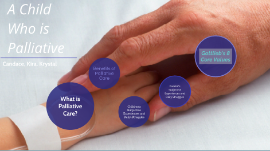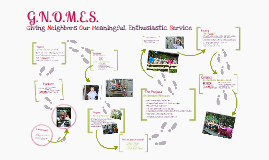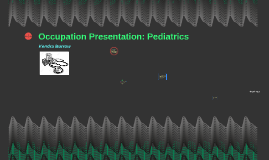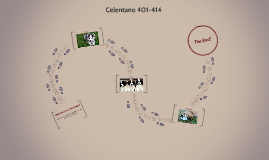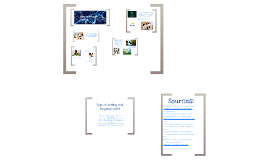Pediatrics Presentation
Transcript: Candace, Kira, Krystal A Child Who is Palliative What is Palliative Care? "Palliative care for children begins when an illness is identified and analyzed, and continues during the entire illness trajectory, aiming to alleviate physical, psychological, and social suffering" (Melin-Johansson, Axelsson, Jonson Grundberg & Hallqvist, 2014, p.61). What is Palliative Care? Similarities: Palliative care can be initiated at the beginning of an illness along with treatments aimed to cure Aims to improve quality of life Caregiving teams aid in decision making and establishing care goals Palliative care invloves many different disciplines Pediatric .VS. Adult Palliative Care Pediatric .VS. Adult Palliative Care Differences: Serious illness is not a "normal" condition for most children Medical decisions for young children are often made by their caregivers Pediatric palliative care can include play therapy, child life therapists and child behaviour specialists getpalliativecare.org Benefits of Palliative Care Benefits of Palliative Care Support Communication Comfort -Focuses on the whole child, while understanding how varying forms of treatment can affect the family as a whole -Support every step of the way, not only just a means of controling the childs symptoms, but also helping families understand treatment goals and options -Palliative care also ensures that children are provided with support through the maintinence of symptoms - Palliative care provides family with an overall extra layer of support, during such a difficult time , it is a resource in itself for families -Bereavement support is also an aspect of palliative care after the child has died getpalliativecare.org Childrens ideas regarding Death, What does it mean for them? Childrens ideas regarding Death, What does it mean for them? Varies depening on: Age Developmental Level Age and Developmental Differences in Response ... Children in this stage have limited understanding regarding accidental events, future and past time, not able to make discrepancies between living and nonliving - Outlook is that life is continuous with death, considered alternate states much like sleep and awake Age and Developmental Differences in Response to Death 1-3 Years 3-5 Years Concepts during this stage are crude and irreversible, unable to distinguish between reality and fantasy - Notion that death is reversible, because of child's egocentricity they are often convinced that they caused the death. Often death can be viewed as a personified entity (Bogeyman) 5-10 Years Thinking begins to become organized and logical, leading to some problem solving but child still lacks abstract reasoning - Child can percieve death as permanent and real. Sometimes may be unaccepting that death can happen to them or any of the people they care about, even though they are starting to know that people will die 10-13 Years Formal logic is starting to be incporated into thinking as well as abstract thoughts - Death viewed as real, final and universal. During this stage children may become more interested in the details such as the funeral, special care must be given to this age group as they will need to be provided with reassurance that they are cared for and loved Thinking is more refined and abstract, allowing this age group to vent emotions is very important - Mature and adult concept of death, may start to view death as an enemy at which they plan on fighting against or dealth can be percieved as failing and may present in this age group as giving up. 14-18 Years Hurwitz, C. A., Duncan, J. & Wolfe, J. (2004). Caring for the child with cancer at the close of life: "There are people who make it, and I'm hoping I'm one of them". Journal of the American Medical Association, 292(17), 2141-2149. Children's Subjective Experiences and Daily Struggles Children's Subjective Experiences and Daily Struggles Therapeutic Communication Emotional Support Physical Comfort Diversional Therapy Therapeutic Play Maintain Self Esteem (Adolescents) What Nurses can do for Children? What Nurses can do for Children? Familie's Subjective Experiences and Daily Struggles Familie's Subjective Experiences and Daily Struggles Financial Strain Emotional Strain (Frustration, Guilt) Breakdowns in Family Structure (Siblings, Spousal Roles) Lack of Self Care Loss of Caregiver Role Communication Empowering Normalization Support Encourage Self Care Encourage Respite Support (Resources) What Nurses can do for the Family? What Nurses can do for the Family? Resources Resources Courageous Parents Network Courageous Parents Network Normalize the Grief (Facilitate Positive Coping) Therapeutic Communication Create Memories Cultural and Spirtual Needs Bereavement Support Bereavement Support Gottlieb's 8 Core Values Gottlieb's 8 Core Values






